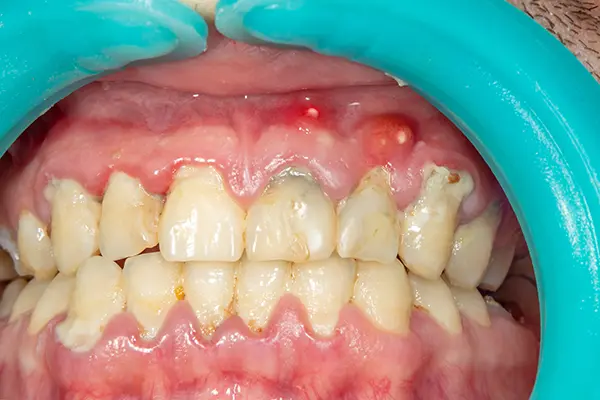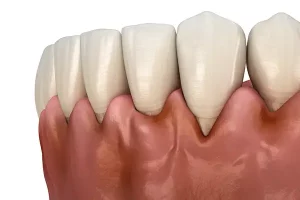Periodontal disease is the inflammation of the gums and bone surrounding the teeth. There are several risk factors that can contribute to gum disease, and they include:
1. Poor Oral Hygiene

Inadequate brushing and interdental cleaning (e.g. flossing, interdental brushes, etc.), and not following proper oral hygiene practices can increase risk of gum disease.
2. Tobacco Use

Smoking or chewing tobacco can significantly increase the likelihood of developing gum disease, and hinder the effectiveness of treatment.
3. Genetics

Some individuals may be more susceptible to gum disease, even in the presence of good hygiene practices.
4. Diabetes

Research has shown that individuals with poorly controlled diabetes are more likely to have uncontrolled gum disease.
5. Medications

Certain medications that cause oral dryness (e.g. anti-depressants) can result in reduced clearance of bacteria in the mouth and increase the risk of developing gum disease.
6. High Stress, Chronic Illness, Poor Nutrition

A combination of these factors can lead to a depressed immune system and reduce the body’s ability to manage any infections, resulting in a greater possibility of developing gum disease.
If you have one or more of the above risk factors for gum disease, it is imperative to actively address them (e.g. improve oral hygiene, quit smoking, improve diabetic control, etc.), in order to reduce the risk of developing gum disease, or improve the outcome of the treatment of gum disease.
It is equally important to visit your dentist on regularly to screen for periodontal disease, and seek active treatment with the dentist if you have been diagnosed with gum disease.



